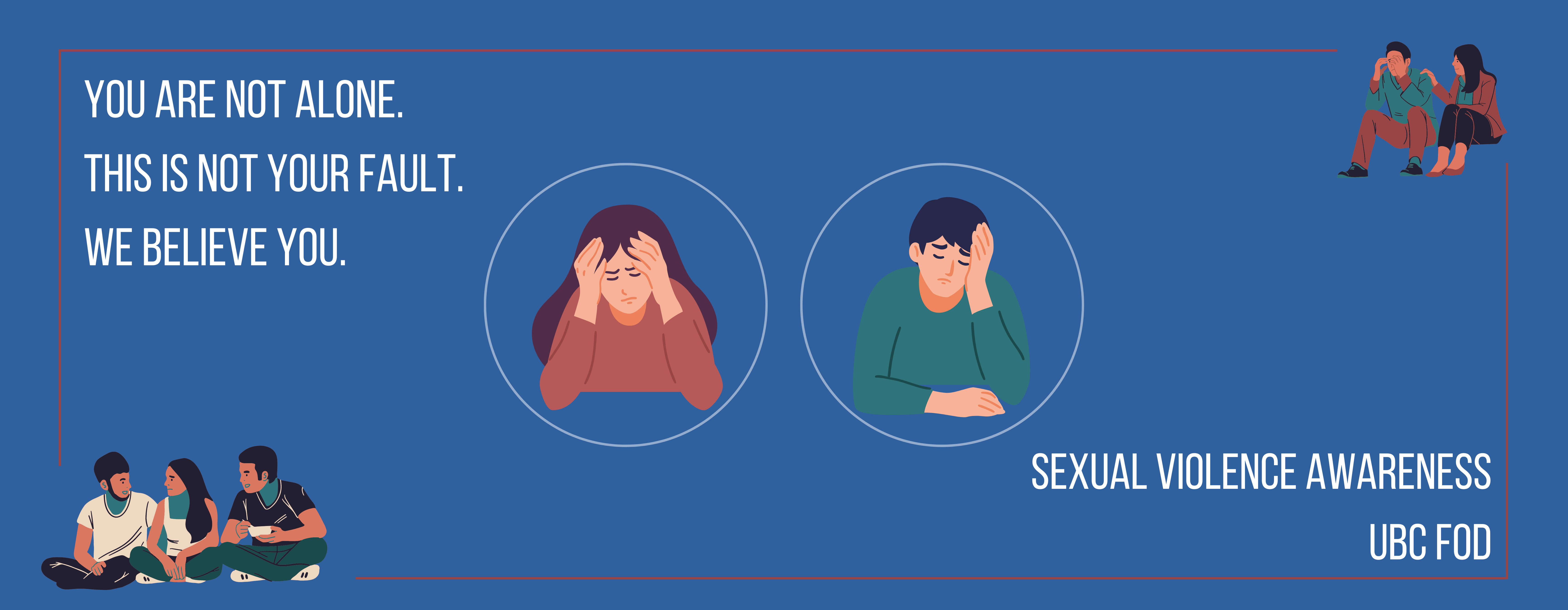
What is sexual violence?
- Sexual violence can be defined as any attempt made to acquire sexual acts through violence, coercion, force, and/or manipulation without consent.
- Rape, sexual assault, sexual harassment, child sexual assault, incest, and public self-gratification are all forms of sexual violence.
- Oftentimes, survivors of sexual violence are unaware that they are victims as a result of both the normalization and unclear boundaries of what constitutes sexual assault.
- However, speaking about this topic, educating ourselves, and listening to survivors are important steps to better address the normalization of rape culture in our society.
Resources if you have experienced sexual violence:
- If you have experienced sexual violence, please know that it is NOT your fault.
- The UBC Sexual Violence Prevention and Response Office (SVPRO) can help you find a place to stay, arrange academic concessions, and go with you to the hospital or the police. They are able to provide you with information about your options, next steps, and simply provide support.
- SVPRO offers support for any member of the UBC community impacted by sexual violence, including secondary and vicarious trauma related to providing support to someone else who has experienced sexual violence.
How to support someone who has experienced sexual violence:
It can be difficult to know what to say when wanting to support someone who has experienced sexual violence. Keep in mind that every individual’s experience is unique as are their reactions. Nevertheless, here are some things that you may want to keep in mind…
- Ask questions about what support the person needs. Avoid questions about what happened or why it happened — let the survivors share to the extent to which they are comfortable.
- Let them know that you believe them and their story. It can be very difficult for survivors to come forward and share their experiences, so providing support by emphasizing your belief in their truth is very important.
- Remind them that this is not their fault. Self-blame can be a common reaction for survivors of sexual violence. Reminding them that they are not at fault for their trauma is a great way to offer support.
- Emphasize that they are not alone. Acknowledge how difficult this is for the survivor while reminding them of their support system who will be able to help them throughout the healing process.
- Provide a referral to support, – which UBC provides through SVPRO. Help safeguard privacy by not sharing information without guidance from SVPRO.
Online Resources:
- UBC SVPRO: https://svpro.ubc.ca/
- Normalizing the Conversation on Denormalizing Sexual Assault: https://ucsdguardian.org/2021/10/24/normalize-the-conversation-on-denormalizing-sexual-assault/
Additional Wellbeing Resources:
- Reach out to your Dentistry Counsellor, Lisa John. If you have any questions or would like to book an appointment, email Lisa at Counselling@dentistry.ubc.ca
- UBC Student Services: https://students.ubc.ca/health
- FOD Student Wellbeing: https://www.dentistry.ubc.ca/education/students/student-wellbeing/